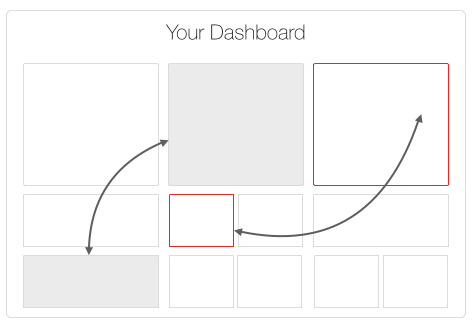Pitching new business is often one of the most expensive things an agency does – expending resources to do research and legwork to prove why they’re the best choice for the client. As the list of agencies competing for business grows, potential clients have started asking for more and more work up front, often unpaid, to prove agency capabilities and client fit.
For agencies, this means quickly and affordably getting access to insights around potential clients, their competitors, and their industry. Conducting a pre-sales audit is a popular way to communicate an understanding of current issues on a site from an SEO standpoint. What started as a simple list of identified SEO problems as part of an agency pitch, has now expanded to include content marketing data points and recommendations.

In this blog, I’ll answer some common questions about pre-sales audits, including:
- How can they help my agency win business?
- What’s included in a pre-sales audit?
- What are some potential drawbacks?
- How can we provide pre-sales audits easily and effectively without spending a lot of time and money?
How can a pre-sales audit help my agency win business?
For most agencies, there’s a review process that happens when clients are considering bringing on outside help. Whether it’s for creative or technical skills, or both, there are lots of options available and many different agency styles, team setups, and individual philosophies for tackling problems.
A few of the most important elements for creating a lasting client / agency partnership are:
- Understanding the real goals of the client
- Stated goals
- Goals your client is being measured on that they may not have told you.
- Knowing their expectations and how your team will meet them.
- Who is involved in the day-to-day process.
- Who has ultimate decision-making authority.
- How you’re uniquely qualified to help reach their goals.
For search and content agencies, a pre-sales audit can help to position the agency as a partner for reaching corporate goals.
To communicate your understanding of the company and it’s challenges, use the pre-sales audit to:
- Set a shared baseline of current site and content performance.
- Give insight and detail into the client’s expectations around improvements in traffic, rank, conversions, and other performance metrics.
- Understand the market situation, including direct and indirect competitors.
What’s included in a pre-sales audit?
First, let’s talk about setting a baseline of current site and content rank and performance. A baseline provides a shared starting set of metrics which you and the client can discuss. Often, prospective clients will disagree with your findings. You may also discover that your standards and the client’s standards for good content performance do not match on all types of content. You may also find that prospects have unrealistic expectations for traffic, conversion, rank changes, and other metrics that cannot be accomplished based on their budgets, resources, other competitors in market, or other significant factors. It’s good to have these conversations early in the relationship to avoid painful mismatches in expectations later.
Besides providing insights into the client’s site and content, use the pre-sales audit to help the client understand the competition. Agencies often include competitive data, but too often I see agencies focusing on how a brand’s direct competition is performing without expanding their view of who the real competition is to include competition at the content level. When we’re looking at an entire site, there are often different types of content there – whether it’s at the feature or product level, based on audience personas, or just the difference between educational content and support information. To do the best job of understanding a prospect’s site performance, agencies need to create some content groups.
Content groups help get better insights into:
- What keywords are driving traffic to specific types of content
- Who the competition is for traffic in each content group
- What improvements need to be made by content group
- Which groups or types of content are the highest priority now
When we’re talking about finding competitors for content at the group level, what we’re looking for is not just other brands that are vying for dollars, we’re also looking at any content that is taking traffic away from your potential client.
For example, if you’re working with Nike’s running shoe department and you know that Brooks and Asics are competitors, what you’re also likely to find is that “Runners World” and other publications are also garnering a considerable amount of traffic for your keywords. While you may not be directly competing with them for the sale of shoes, you are competing with them for education and attracting customers. Knowing what content other brands are creating that’s resonating with your target audience will give you powerful information on what to focus on.
Here are some other resources for competitor discovery and content grouping to help you get the most out of our audit and set up groups correctly.
- How to find competitors and outrank them
- Strategies for creating content groups
- Beat the competition with competitor groups
Are there potential drawbacks to a pre-sales audit?
How much data is too much to share before a prospect becomes a paying client? I’ve had discussions with agencies who include a full site audit with recommended improvements to other agencies who prefer to provide less data and more of an executive summary with key findings and a couple of bullet points.
Some of the concern for agencies, naturally, is that clients will get this free information and a set of recommendations from a quality shop and then either make the improvements internally or pay someone who is less expensive to execute on the proposal. These are real issues and agency representatives know too well how often it happens. Before you decide what to share and what to keep hidden, take into account how much resource expenditure is happening for your agency. If each audit is costing your company thousands of dollars and you’re conducting them regularly, you might approach the situation with more caution.
How to develop a pre-sales audit without breaking the bank
If you have a systemized process and pre-set templates, providing a pre-sales audit with some deeper insights doesn’t have to take up a lot of time and money. Once you’ve created your templates and system for getting the data, you will have a powerful prospecting and you’ll start closing a lot more business.
One of the things we’ve done at GinzaMetrics is create custom dashboards that can be used for pre-sales audits. These dashboards can include various modules of the site that you choose and can then be edited to show the data, timelines, and information that you want, including adding in your own notes, titles, and custom information. They’re also all able to be white labeled. You can even create a template that will automatically create the audit every time you add a new site. With something like this, you’re able to do audits within your existing account alongside current client dashboards. Once you sign the business, you can simply migrate the site to a full time dashboard, with data already populated.

One of the questions I’m frequently asked about creating templates is what all should be included. While I’ll give the infuriating “it depends” answer, I’ll expand to add some things I think are important.
Obviously what all needs to go into a template depends on what type of agency you are and what services the client is interested in. In my opinion, providing an audit that just has standard information that the client likely already knows or can get easily isn’t going to be impressive or very useful in starting conversations. I like to include these “baseline metrics” in the audit of course, because it’s important that we all agree on where we’re starting. Beyond that, I think it’s important to be able to do some digging for at least a couple of insights that can spark ideas or create real change.
Consider adding these data points into your pre-sales audit to set your agency apart:
- Competitor analysis and competitor discovery insights.
- Keyword insights including keyword discovery.
- The intersection of search and social trends.
- Universal Search to show true rank based on all elements on a page.
- Local and mobile trend data.
One last note about the importance of pre-sales audits. They can help shorten the time it takes to onboard clients – which is a common frustration for both parties. As mentioned earlier, when you’re setting a baseline of current site and content performance using real data, you are also able to have conversations around expectations, goals, and resources that come from that starting point.
If you provide some deeper insights and ideas as a part of your audit, you’re giving your potential clients a look at your philosophy and approach to problem-solving, as well as some information into the tactics you’ll use to accomplish goals. Sometimes, you’ll find that they have tactics in mind already or an approach that they’ve used in the past that they’d like to see implemented differently. All of this information will help you get onboarded and get started creating value for your clients faster.
Watch the Found Friday Episode here:
[vc_column_inner width=”2/3″][vc_row][vc_column width=”2/3″][vc_video link=”https://www.youtube.com/watch?v=j_fxrct7mIQ&feature=youtu.be” css=”.vc_custom_1438627244022{margin: 10px 60px !important;}”][/vc_column][/vc_row][vc_row][vc_column width=”2/3″]
